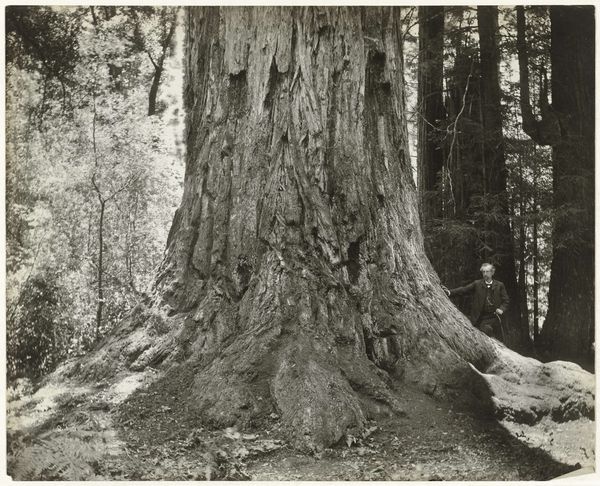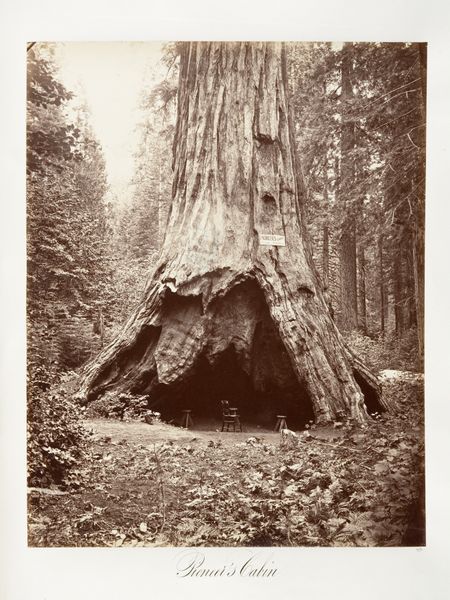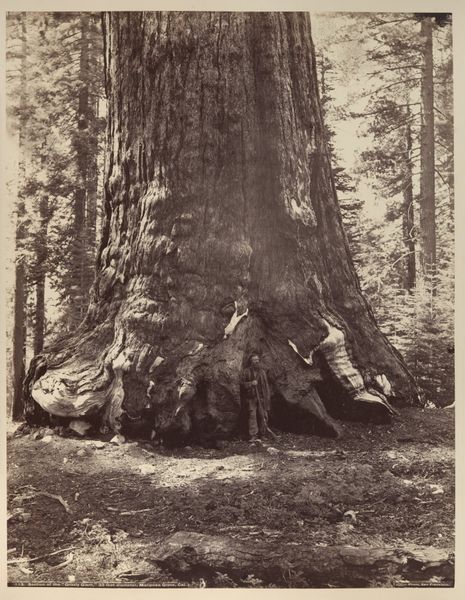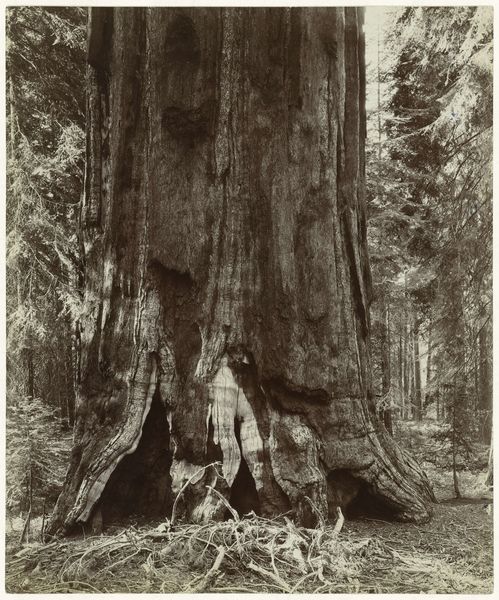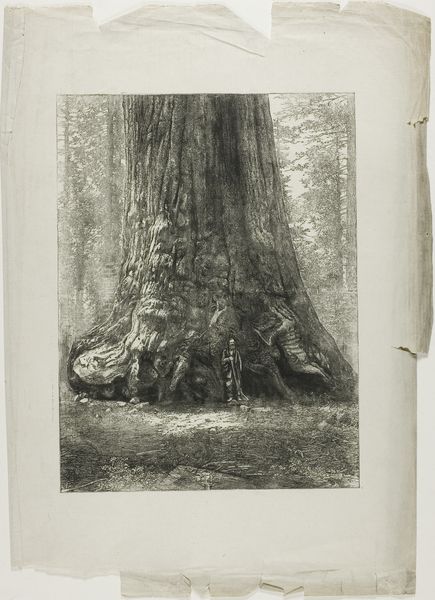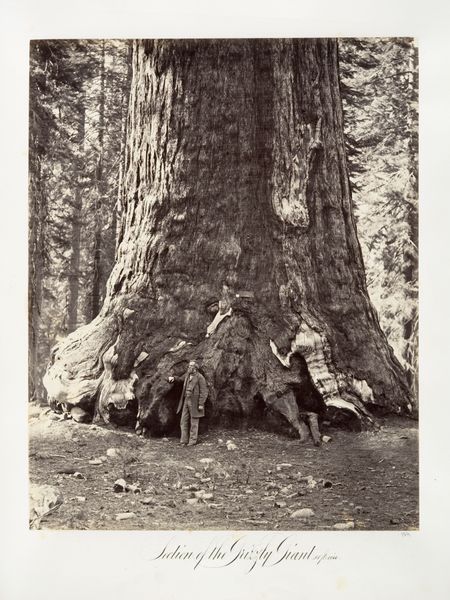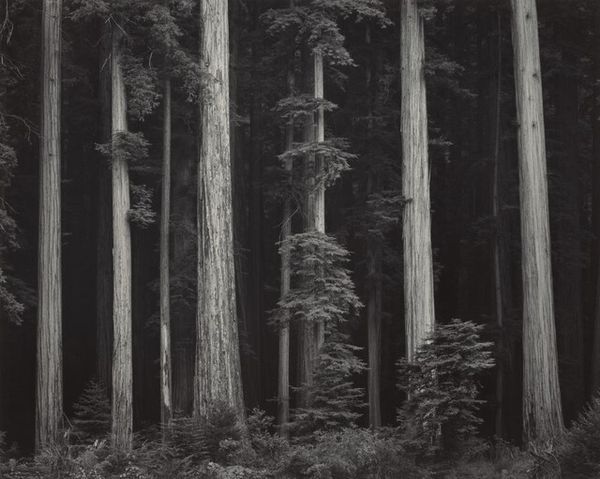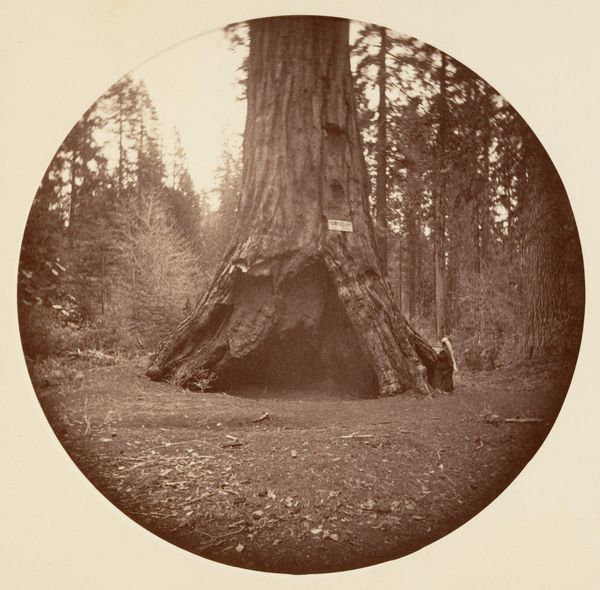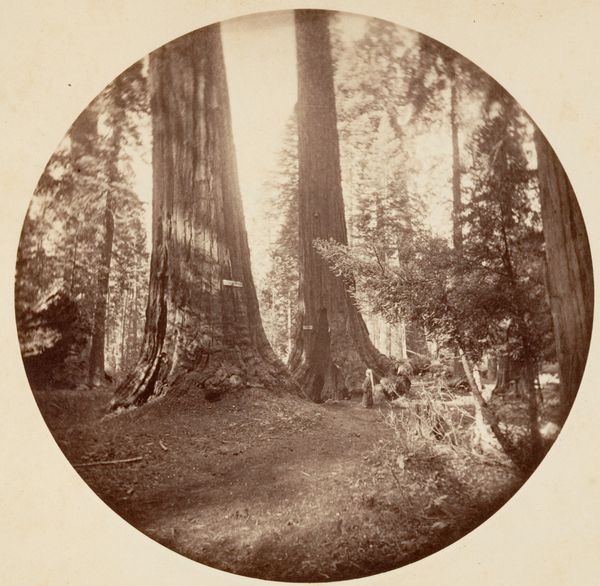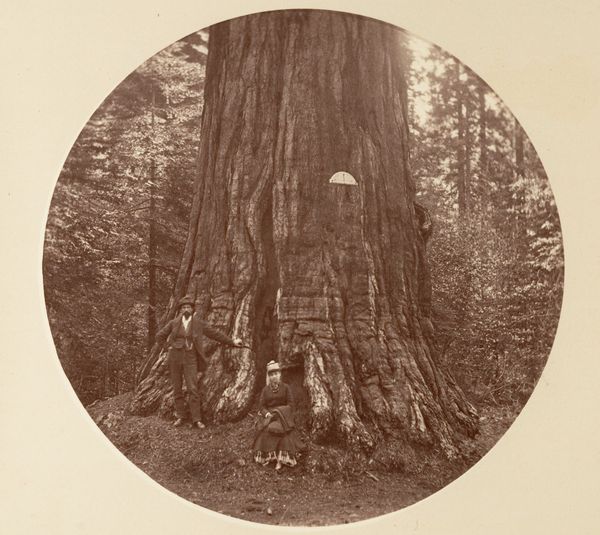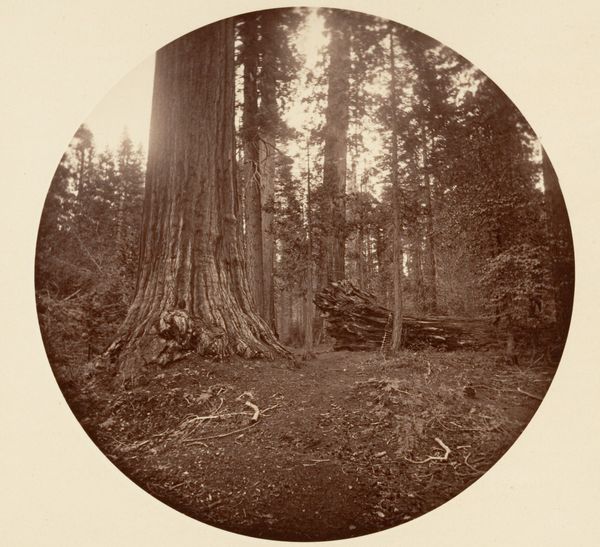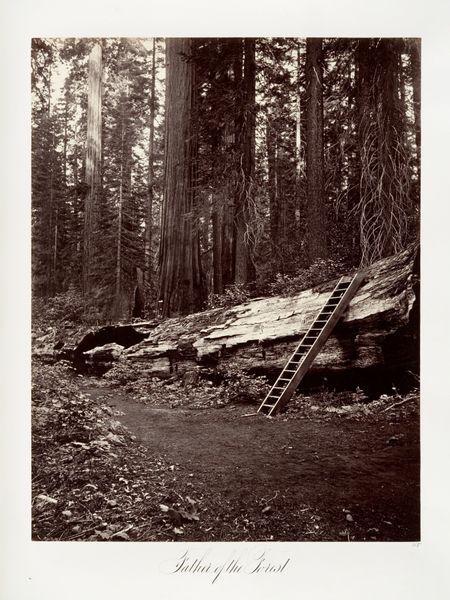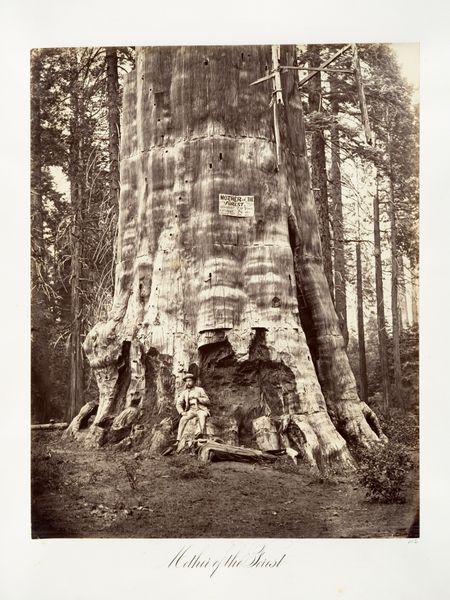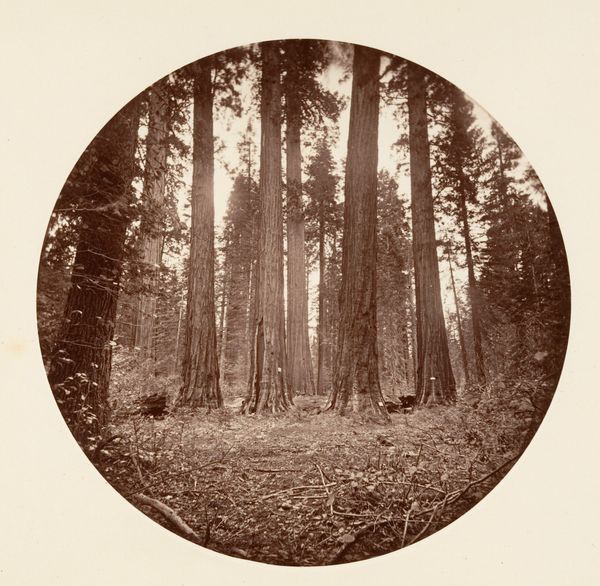
photography, gelatin-silver-print
#
tree
#
landscape
#
photography
#
forest
#
orientalism
#
gelatin-silver-print
#
hudson-river-school
Copyright: Public Domain
Curator: Standing before us is Carleton Watkins's striking photograph, "The Three Graces, 272 feet," created between 1865 and 1866. He used the gelatin-silver print method, a technique known for its rich tonal range. Editor: The immediate feeling I get is one of overwhelming power and awe. Those trees dominate the scene, they’re like ancient, silent sentinels. Curator: The title immediately directs us toward a classical reference. In Greco-Roman mythology, the Three Graces represent beauty, charm, and joy. How do you see those ideas at play here? Editor: Well, I think the way the trees stand together, so closely and symmetrically, gives the impression of an intentional arrangement, almost as if they’ve posed for a portrait. The smooth tonal gradations definitely impart a sense of beauty, even charm. But is joy here? The photograph overall gives more the impression of sublimity. Curator: It is worth remembering this photo comes at a time of huge national trauma, fresh from the civil war. It's a recuperative gesture perhaps? In that sense, are those values, of beauty, charm, and joy a type of healing power? This naming could also have implications for the native American peoples who lived alongside these giant Sequoias, with no recognition afforded in his title. Editor: Interesting. It positions the American landscape within a very specific cultural narrative. Are these “Graces” nature itself, tamed and admired through a European lens? Also, I'm noticing how the dark foreground really frames and emphasizes the monumental height of the trees. The forest around feels chaotic in contrast to the clean lines of the 'graces'. Curator: Watkins, of course, was also instrumental in the American West being understood through the Orientalist lens. Remember the construction of landscapes was of great significance to ideas of westward expansion and even divine favour. Editor: True. I'm struck how the interplay between light and shadow makes their bark almost glow. Looking at how tall these are reminds you of the vulnerability of human endeavours. It's a stunning study of scale, in which civilization feels puny in the face of nature's magnificence. Curator: Watkins' work here is a complex, powerful intersection of art, culture, and the American experience. Editor: A perspective on not just the forest as subject, but also photography as intervention within culture.
Comments
No comments
Be the first to comment and join the conversation on the ultimate creative platform.
